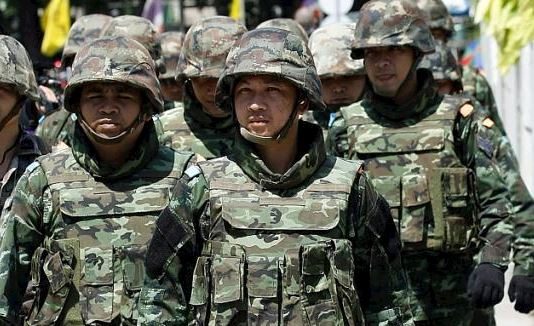After six months of protests, sporadic violence, and political stalemate, the army succumbed to Suthep’s wish – a full fledge coup d’état followed two days of martial law. The Army Commander, General Prayuth Chan-Ocha, is taking control of Thailand. The 2007 Constitution is partly suspended. Many were overjoyed by this latest development. They said, “Now, we can move on and prosper once again.”
That statement raises a crucial question for this country. Thailand, what is your next move?
One of the junta’s priorities is a “political reform.” People Democratic Reform Committee (PDRC) has long campaigned for corruption-free Thailand and the junta promised no election before the reform is complete. However, despite six months of heavy campaigning, no PDRC member can give a concrete answer as to what a “reform” really means. Since 1997, Thailand has introduced almost every mechanism available to curb corruption: asset disclosure, conflict of interest laws, impeachment, several independent agencies and the special criminal court with fast-track procedure. In 2007 and 2011, the National Assembly, backed by another junta, and the Democrat government, respectively, proposed the new electoral systems which would allow no fraud and guarantee fairer results. All attempts failed miserably.
The goal of PDRC is to design an election with no fraud. Also, an elected candidate must be of “good morals.” Perhaps PDRC forgot an important element of a democracy – that a candidate is not elected because of his moral standard but his popularity. An MP can be as selfish as he may, but as long as he serves the people, he will most likely be re-elected. Then it is up to the people how they would react when he crosses the line. A dream of having an absolutely clean election is also unrealistic. Electoral fraud must be dealt with swiftly when it occurs, but it should not invalidate the entire election outcome. Thus, the focus of the reform should aim at law enforcement.
Thailand has more than enough anti-corruption legislation. Elaborate measures and severe punishment successfully discourage government officials from being innovative in corrupting, and in some cases from even working since anything they do can be investigated. Yet corruption still thrives because law enforcement is ineffective. Almost absolute autonomy is granted to courts and other independent agencies. Despite hefty salary, courts and other independent agencies are accountable neither to MP’s, the cabinet, nor the people. As a result, they are slow and biased. Only their political opponents are selectively prosecuted. The National Counter-Corruption Commission (NCCC) simply claimed that it had lost documents concerning the case of the Democrat party’s rice subsidy scheme during the big flood in 2011 while it relentlessly pursues the Yingluck administration’s rice subsidy scheme. NCCC also dared not to investigate cases involving the army, i.e. procurement of a fake bomb detector, GT 200, and an aircraft that never made a journey to the air.
The incoming reform would propose more mechanisms that will never bring the culprits before justice. It only adds more obstacles to the already cumbersome administration. The new electoral system will simply be designed to allow the elite minority to gain as many seats in the parliament as possible.
There are many challenges awaiting the junta. At this moment, General Prayuth is the Prime Minister. Commanders of the military and police forces oversee ministries and other agencies. Since they lack the competence and experience, they would seek assistance from the existing technocrats – those who would not help Thailand move forward. Most of them are old conservative elites who are unwilling to tackle economic inequality and social injustice, the very roots of Thailand’s crises.
Most importantly, how can the junta reunite the highly divided nation? The junta recited the need to promote unity, but unity must come only with fairness. PDRC and Democrat members are celebrating while UDD and Pheu Thai members are being detained. Hate speech is exchanged everywhere. The use of deadly force against political opponents is encouraged.
The final question is how can Prayuth restore democracy? Democracy cannot grow out of suppression, intolerance, and lack of accountability. The military is witch-hunting. Scholars, activists, and students of liberal spectrum are summoned and detained. Their fates are unknown. The senate, judiciary, and other independent agencies have been criticized for deliberately setting the stage for a deadlock, thus inviting a coup d’état. Their arbitrariness is much appreciated by large portion of citizens. The military itself is notorious for corruption and violation of human rights. How can the big corruptor eradicate corruption?
“We don’t want democracy. We just want transparency and accountability,” shouted many people. Ironically, they do not realize that they are losing everything. They better be careful what they wish for.
Khemthong Tonsakulrungruang is a Thai constitutional law scholar.
 Facebook
Facebook  Twitter
Twitter  Soundcloud
Soundcloud  Youtube
Youtube  Rss
Rss 